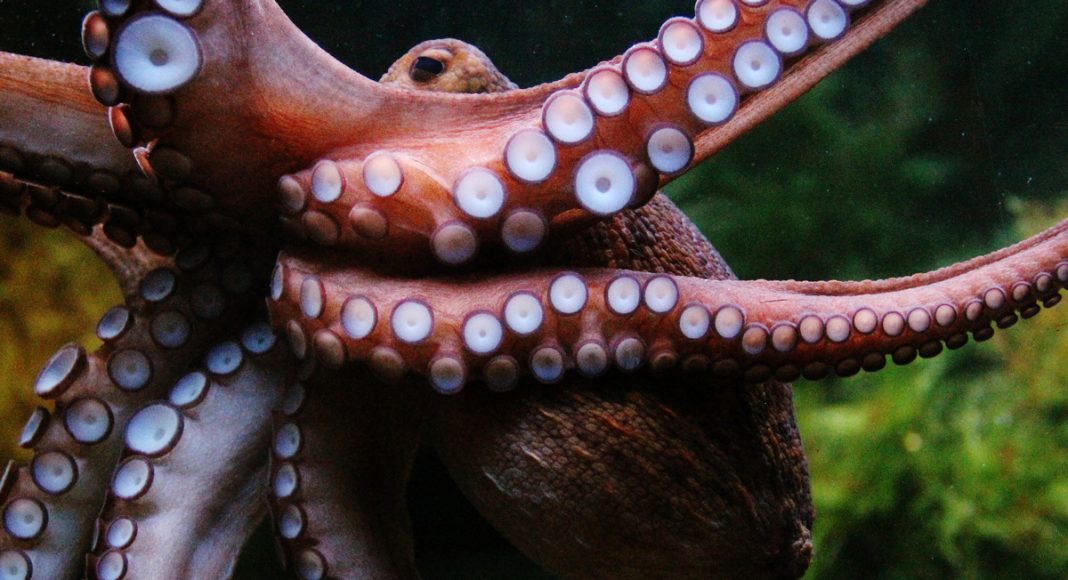Octopuses are not creatures we would characterize as being a good hang. Their abilities as escape artists, chameleonic shape-shifters, and all-around intelligent invertebrates withstanding, octopuses are loner maniacs. You know Travis Bickle, Robert DeNiro’s character in Taxi Driver? Imagine him as an octopus. Now you know what an octopus is usually like.
To help understand the intelligence octopuses have, scientists decided to give the creatures MDMA. Yes, the party drug that goes by names like ecstasy, Molly, and E. They wanted to understand how the animals would respond to the psychoactive drug. The study, published last week in Current Biology, showed that MDMA made loner octopuses want to cuddle. High on the drug, they became social, “essentially hugging.” Seriously.
-
Related Story: Study: Cannabis May Help Treat Alcohol And Cocaine Addiction
“The brains of octopuses are more similar to those of snails than humans, but our studies add to evidence that they can exhibit some of the same behaviors that we can,” said Gül Dölen, M.D., Ph.D., an assistant neuroscience professor at Johns Hopkins and the lead researcher on the study. “What our studies suggest is that certain brain chemicals, or neurotransmitters, that send signals between neurons required for these social behaviors are evolutionarily conserved.”
Though our brains might be wired differently, the research could present promising findings about how social behavior is neurologically managed. Humans and octopuses have almost identical genomic codes for the transporter that binds serotonin, which is often associated with mood and depressive disorders. Because octopuses are separated by “500 million years of evolution from humans,” Dr. Dölen believes it represents an intriguing case study the relationship between serotonin and MDMA.
Judit Pungor, a neuroscientist at the University of Oregon, told NPR: “They have this huge complex brain that they’ve built, that has absolutely no business acting like ours does — but here they show that it does. The fact that they induced this very sort of gentle, cuddly behavior is really pretty fascinating.”
-
Related Story: Music, Your Brain And Marijuana: Not What You Think
Scientists gave the octopuses MDMA by inserting them into sweater with doses of the drug. When the dosage was higher, the octopuses became super vigilant, changing colors frequently and angling themselves into the corner. But when the dosage was low, an amount more similar to the amount a human might take, the octopuses became more social, interacting with one another in a way they normally only do when matting. Scientists observed the effects the low dose of MDMA had on them was comparable to how humans might act on the drug.
The study could eventually lead scientists to discover treatment methods using MDMA to help those with PTSD or other depressive disorders.
“We need to be taking full advantage of these compounds to see what they’re doing to the brain,” Dr. Dölen told the New York Times.


